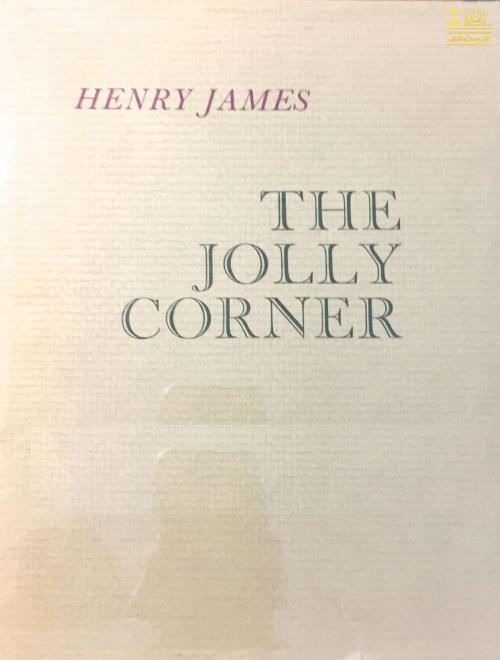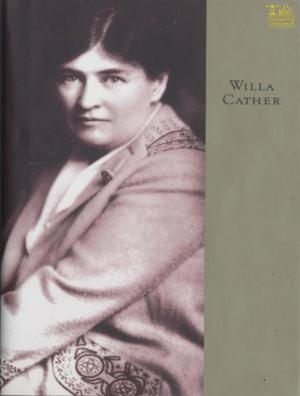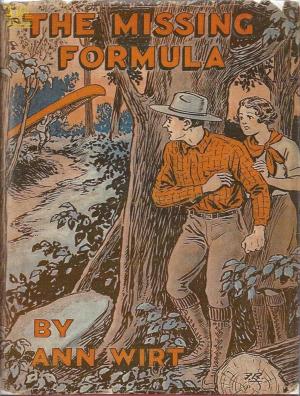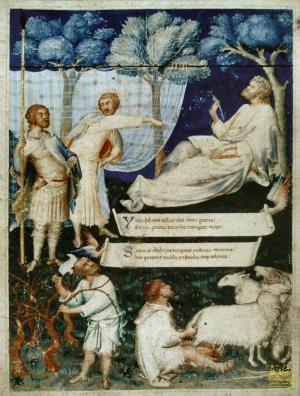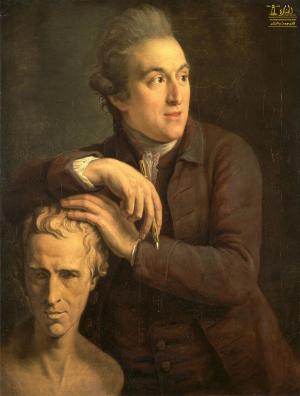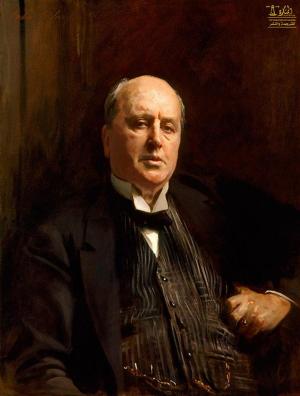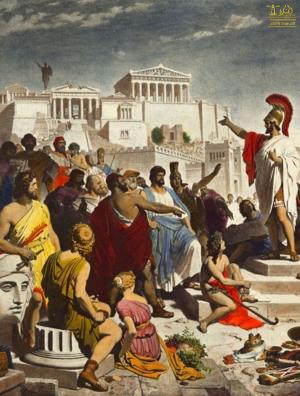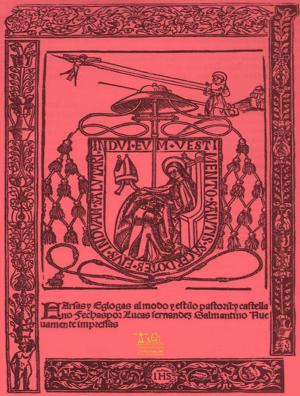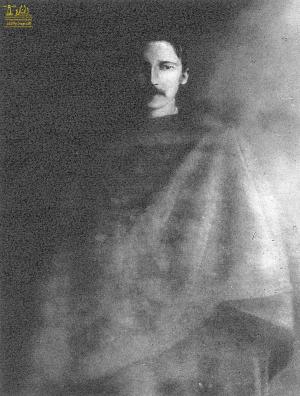The Jolly Corner
Nonfiction, Entertainment, Drama, Anthologies, Fiction & Literature, Literary Theory & Criticism| Author: | Henry James | ISBN: | 9780599455948 |
| Publisher: | Lighthouse Books for Translation Publishing | Publication: | May 10, 2019 |
| Imprint: | Lighthouse Books for Translation and Publishing | Language: | English |
| Author: | Henry James |
| ISBN: | 9780599455948 |
| Publisher: | Lighthouse Books for Translation Publishing |
| Publication: | May 10, 2019 |
| Imprint: | Lighthouse Books for Translation and Publishing |
| Language: | English |
"The Jolly Corner" is a short story by Henry James published first in the magazine The English Review of December, 1908. One of James' most noted ghost stories, "The Jolly Corner" describes the adventures of Spencer Brydon as he prowls the now-empty New York house where he grew up.
Henry James, (born April 15, 1843, New York, New York, U.S.—died February 28, 1916, London, England), American novelist and, as a naturalized English citizen from 1915, a great figure in the transatlantic culture. His fundamental theme was the innocence and exuberance of the New World in clash with the corruption and wisdom of the Old, as illustrated in such works as Daisy Miller (1879), The Portrait of a Lady (1881), The Bostonians (1886), and The Ambassadors (1903).
Henry James was named for his father, a prominent social theorist and lecturer, and was the younger brother of the pragmatist philosopher William James. The young Henry was a shy, book-addicted boy who assumed the role of quiet observer beside his active elder brother. They were taken abroad as infants, were schooled by tutors and governesses, and spent their preadolescent years in Manhattan. Returned to Geneva, Paris, and London during their teens, the James children acquired languages and an awareness of Europe vouchsafed to few Americans in their times. On the eve of the American Civil War, the James family settled at Newport, Rhode Island, and there, and later in Boston, Henry came to know New England intimately. When he was 19 years of age, he enrolled at the Harvard Law School, but he devoted his study time to reading Charles Augustin Sainte-Beuve, Honoré de Balzac, and Nathaniel Hawthorne. His first story appeared anonymously two years later in the New York Continental Monthly and his first book reviews in the North American Review. When William Dean Howells became editor of The Atlantic Monthly, James found in him a friend and mentor who published him regularly. Between them, James and Howells inaugurated the era of American “realism.”
By his mid-20s James was regarded as one of the most skillful writers of short stories in America. Critics, however, deplored his tendency to write of the life of the mind, rather than of action. The stories of these early years show the leisurely existence of the well-to-do at Newport and Saratoga. James’s apprenticeship was thorough. He wrote stories, reviews, and articles for almost a decade before he attempted a full-length novel. There had to be also the traditional “grand tour,” and James went abroad for his first adult encounter with Europe in 1869. His year’s wandering in England, France, and Italy set the stage for a lifetime of travel in those countries. James never married. By nature he was friendly and even gregarious, but, while he was an active observer and participant in society, he tended, until late middle age, to be “distant” in his relations with people and was careful to avoid “involvement.”
Much as he liked France, James felt that he would be an eternal outsider there, and late in 1876 he crossed to London. There, in small rooms in Bolton Street off Piccadilly, he wrote the major fiction of his middle years. In 1878 he achieved international renown with his story of an American flirt in Rome, Daisy Miller, and further advanced his reputation with The Europeans that same year.
"The Jolly Corner" is a short story by Henry James published first in the magazine The English Review of December, 1908. One of James' most noted ghost stories, "The Jolly Corner" describes the adventures of Spencer Brydon as he prowls the now-empty New York house where he grew up.
Henry James, (born April 15, 1843, New York, New York, U.S.—died February 28, 1916, London, England), American novelist and, as a naturalized English citizen from 1915, a great figure in the transatlantic culture. His fundamental theme was the innocence and exuberance of the New World in clash with the corruption and wisdom of the Old, as illustrated in such works as Daisy Miller (1879), The Portrait of a Lady (1881), The Bostonians (1886), and The Ambassadors (1903).
Henry James was named for his father, a prominent social theorist and lecturer, and was the younger brother of the pragmatist philosopher William James. The young Henry was a shy, book-addicted boy who assumed the role of quiet observer beside his active elder brother. They were taken abroad as infants, were schooled by tutors and governesses, and spent their preadolescent years in Manhattan. Returned to Geneva, Paris, and London during their teens, the James children acquired languages and an awareness of Europe vouchsafed to few Americans in their times. On the eve of the American Civil War, the James family settled at Newport, Rhode Island, and there, and later in Boston, Henry came to know New England intimately. When he was 19 years of age, he enrolled at the Harvard Law School, but he devoted his study time to reading Charles Augustin Sainte-Beuve, Honoré de Balzac, and Nathaniel Hawthorne. His first story appeared anonymously two years later in the New York Continental Monthly and his first book reviews in the North American Review. When William Dean Howells became editor of The Atlantic Monthly, James found in him a friend and mentor who published him regularly. Between them, James and Howells inaugurated the era of American “realism.”
By his mid-20s James was regarded as one of the most skillful writers of short stories in America. Critics, however, deplored his tendency to write of the life of the mind, rather than of action. The stories of these early years show the leisurely existence of the well-to-do at Newport and Saratoga. James’s apprenticeship was thorough. He wrote stories, reviews, and articles for almost a decade before he attempted a full-length novel. There had to be also the traditional “grand tour,” and James went abroad for his first adult encounter with Europe in 1869. His year’s wandering in England, France, and Italy set the stage for a lifetime of travel in those countries. James never married. By nature he was friendly and even gregarious, but, while he was an active observer and participant in society, he tended, until late middle age, to be “distant” in his relations with people and was careful to avoid “involvement.”
Much as he liked France, James felt that he would be an eternal outsider there, and late in 1876 he crossed to London. There, in small rooms in Bolton Street off Piccadilly, he wrote the major fiction of his middle years. In 1878 he achieved international renown with his story of an American flirt in Rome, Daisy Miller, and further advanced his reputation with The Europeans that same year.
